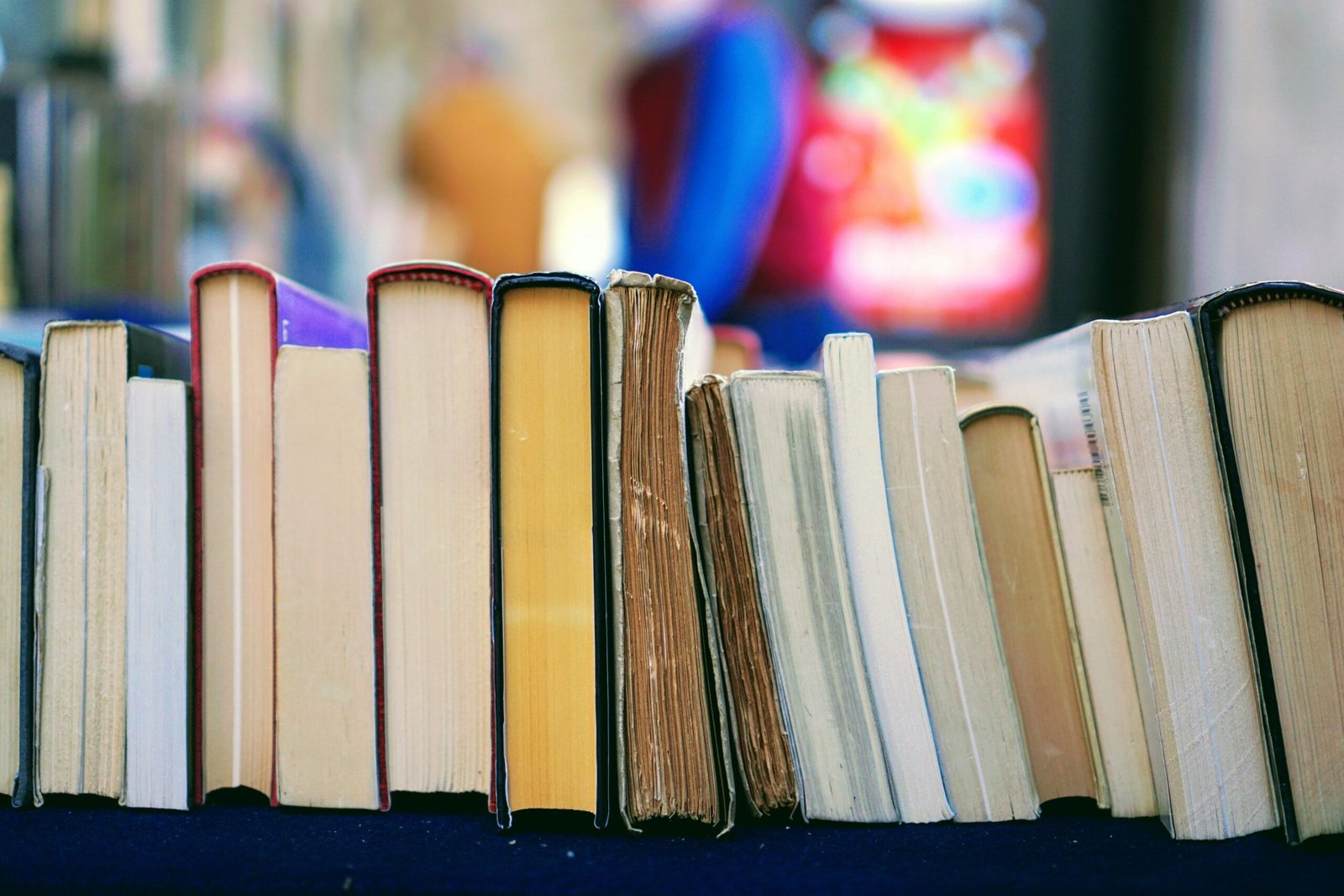Introduction
Welcome to a literary journey through time, where the pages of history come alive with tales of love, adventure, and profound insight. In this curated list of must read books, we invite you to explore a diverse array of literary masterpieces that have captured the hearts and minds of readers for generations.
As you embark on this literary odyssey, prepare to be transported to distant lands and immersive worlds, where characters leap off the page and into your imagination. Each must read book on this list offers a unique and unforgettable reading experience, filled with richly drawn characters, compelling narratives, and timeless themes that resonate across cultures and generations.
From the sun-soaked streets of 19th-century England to the mythical realms of Middle-earth, these books invite you to embark on a journey of discovery and enlightenment. Whether you’re a seasoned bibliophile or a casual reader looking for your next literary adventure, there’s something for everyone to enjoy in this collection of timeless classics.
In the pages that follow, you’ll encounter tales of love and loss, heroism and villainy, and the eternal struggle between good and evil. You’ll meet iconic characters who will capture your heart and challenge your perceptions, as you journey through the depths of the human experience and the vast expanse of the imagination.
But beyond mere entertainment, these must read books offer profound insights into the human condition and the world around us. Through their vivid storytelling and universal themes, they provoke thought, inspire empathy, and ignite a passion for learning and exploration.
Whether you’re drawn to the sweeping romance of “Pride and Prejudice” or the dystopian vision of “1984,” whether you’re captivated by the epic adventures of “The Lord of the Rings” or the psychological depth of “Crime and Punishment,” there’s no shortage of literary treasures waiting to be discovered. So, without further ado, let us embark on this literary journey together, as we delve into the pages of some of the greatest books ever written. May these timeless classics ignite your imagination, broaden your horizons, and remind you of the transformative power of storytelling.
List of Must Read Books

- “To Kill a Mockingbird” by Harper Lee: Set in the racially charged atmosphere of the American South during the 1930s, “To Kill a Mockingbird” chronicles the journey of Scout Finch, a young girl grappling with the intricacies of morality and prejudice. Through her father, Atticus Finch, a principled lawyer defending a black man accused of raping a white woman, readers witness the injustices of the legal system and the resilience of the human spirit. Themes of empathy, compassion, and the loss of innocence are woven throughout the narrative, making it a timeless classic that continues to resonate with readers of all ages.
- “1984” by George Orwell: In the dystopian world of “1984,” Orwell paints a chilling picture of a totalitarian regime where individuality is suppressed, and government surveillance is omnipresent. Through the eyes of protagonist Winston Smith, readers are immersed in a world of oppression, propaganda, and perpetual war. Orwell’s novel serves as a cautionary tale about the dangers of unchecked government power and the importance of preserving freedom and truth.
- “Pride and Prejudice” by Jane Austen: Set in early 19th-century England, “Pride and Prejudice” follows the tumultuous romantic journey of Elizabeth Bennet and Mr. Darcy. Against the backdrop of social norms and class distinctions, Austen masterfully explores themes of love, marriage, and the importance of overcoming prejudice. With its witty dialogue and memorable characters, the novel continues to captivate readers with its timeless charm and enduring relevance.
- “The Great Gatsby” by F. Scott Fitzgerald: Set in the Roaring Twenties, “The Great Gatsby” is a dazzling portrait of the American Dream and its disillusionment. Through the eyes of narrator Nick Carraway, readers are introduced to the enigmatic Jay Gatsby, a mysterious millionaire obsessed with the idea of reclaiming his lost love, Daisy Buchanan. Fitzgerald’s evocative prose and vivid imagery capture the glamour and decadence of the Jazz Age while also exploring themes of love, wealth, and the emptiness of materialism.
- “The Catcher in the Rye” by J.D. Salinger: Narrated by the cynical and alienated teenager Holden Caulfield, “The Catcher in the Rye” is a poignant coming-of-age story that captures the angst and confusion of adolescence. As Holden navigates the streets of New York City, readers are drawn into his world of disillusionment, rebellion, and yearning for authenticity. Salinger’s novel continues to resonate with readers for its raw honesty and portrayal of the universal struggle to find one’s place in the world.
- “The Lord of the Rings” by J.R.R. Tolkien: Tolkien’s epic fantasy trilogy transports readers to the enchanting world of Middle-earth, where a diverse cast of characters embark on a quest to destroy the One Ring and defeat the dark lord Sauron. Filled with richly imagined landscapes, intricate mythology, and themes of friendship, courage, and sacrifice, “The Lord of the Rings” has captivated generations of readers with its timeless tale of good versus evil.
- “The Hobbit” by J.R.R. Tolkien: Before the events of “The Lord of the Rings,” Bilbo Baggins, a humble hobbit, is swept away on an unexpected adventure to reclaim the lost kingdom of Erebor from the fearsome dragon Smaug. Along the way, he encounters trolls, elves, and goblins, and discovers courage and resourcefulness he never knew he possessed. With its whimsical charm and captivating storytelling, “The Hobbit” is a beloved classic that continues to enchant readers of all ages.
- “Jane Eyre” by Charlotte Bronte: Bronte’s timeless novel follows the journey of Jane Eyre, an orphaned governess who overcomes adversity to find love and independence. From her difficult childhood at the oppressive Lowood School to her tumultuous relationship with the brooding Mr. Rochester, Jane’s story is a testament to the power of resilience, integrity, and self-discovery. Bronte’s richly drawn characters and vivid descriptions have earned “Jane Eyre” a place as one of the most beloved classics of English literature.
- “Moby-Dick” by Herman Melville: At the heart of Melville’s epic novel is the enigmatic Captain Ahab’s obsessive quest for revenge against the elusive white whale, Moby-Dick. Set against the backdrop of the whaling industry, the novel explores themes of obsession, fate, and the destructive power of unchecked ambition. Through its sweeping narrative and philosophical musings, “Moby-Dick” remains a timeless masterpiece that continues to captivate readers with its rich symbolism and timeless themes.
- “War and Peace” by Leo Tolstoy: Set against the backdrop of Napoleon’s invasion of Russia, Tolstoy’s epic novel follows the lives of several aristocratic families as they navigate love, war, and the tumultuous events of history. Through its sprawling narrative and richly drawn characters, “War and Peace” explores themes of fate, free will, and the search for meaning in a chaotic world. Tolstoy’s masterful storytelling and profound insights into the human condition have secured the novel’s place as one of the greatest works of literature ever written.
- “The Adventures of Huckleberry Finn” by Mark Twain: Twain’s classic novel follows the adventures of Huck Finn, a young boy fleeing from his abusive father and seeking freedom on the Mississippi River. Along the way, he forms an unlikely friendship with the escaped slave Jim, and together they embark on a journey filled with humor, danger, and moral dilemmas. Through Huck’s eyes, readers are confronted with the harsh realities of racism and social injustice, making “The Adventures of Huckleberry Finn” a powerful and enduring critique of American society.
- “The Grapes of Wrath” by John Steinbeck: Set during the Great Depression, Steinbeck’s novel follows the Joad family as they leave their drought-ravaged farm in Oklahoma and journey to California in search of a better life. Through their struggles and hardships, Steinbeck paints a vivid portrait of the human spirit and the resilience of the human soul. With its powerful themes of social justice, inequality, and the plight of the working class, “The Grapes of Wrath” remains a poignant and relevant commentary on the American experience.
- “The Odyssey” by Homer: Homer’s epic poem follows the journey of Odysseus, a Greek hero, as he travels home from the Trojan War to reunite with his wife, Penelope, and son, Telemachus. Along the way, he faces numerous challenges, including battles with mythical creatures and encounters with vengeful gods. Through its richly woven tapestry of adventure, romance, and mythological symbolism, “The Odyssey” continues to captivate readers with its timeless themes of heroism, perseverance, and the search for home.
- “Crime and Punishment” by Fyodor Dostoevsky: Dostoevsky’s psychological thriller follows the story of Rodion Raskolnikov, a destitute student who commits a heinous crime in the belief that he is above conventional morality. As he grapples with guilt and paranoia, Raskolnikov is drawn into a web of intrigue and moral ambiguity. Through its exploration of guilt, redemption, and the nature of evil, “Crime and Punishment” remains a gripping and thought-provoking masterpiece of Russian literature.
- “One Hundred Years of Solitude” by Gabriel Garcia Marquez: Marquez’s masterpiece transports readers to the mythical town of Macondo, where the Buendia family experiences love, loss, and the passage of time. Through its magical realism and lush storytelling, “One Hundred Years of Solitude” explores themes of fate, memory, and the cyclical nature of history. Marquez’s vivid imagery and lyrical prose have earned the novel a place as one of the most beloved works of 20th-century literature.
- “The Chronicles of Narnia” by C.S. Lewis: Lewis’s beloved series follows the adventures of the Pevensie siblings as they discover the magical land of Narnia and embark on a quest to defeat the evil White Witch and restore peace to the realm. Through its enchanting storytelling and allegorical themes, “The Chronicles of Narnia” captivate readers of all ages with its timeless tale of good versus evil, courage, and redemption.
- “Brave New World” by Aldous Huxley: Set in a dystopian future where technology and consumerism reign supreme, “Brave New World” explores themes of individuality, conformity, and the loss of humanity. Through its chilling portrayal of a society controlled by pleasure and efficiency, Huxley’s novel serves as a cautionary tale about the dangers of sacrificing freedom for comfort. With its thought-provoking ideas and prophetic vision, “Brave New World” continues to resonate with readers as a powerful critique of modern society.
- “Wuthering Heights” by Emily Bronte: Bronte’s Gothic romance follows the passionate and destructive love affair between Heathcliff and Catherine Earnshaw, two star-crossed lovers bound by fate and tragedy. Set against the wild and rugged landscape of the Yorkshire moors, “Wuthering Heights” explores themes of revenge, obsession, and the destructive power of unchecked passion. Bronte’s haunting prose and vivid characters have earned the novel a place as one of the greatest love stories ever written.
- “The Picture of Dorian Gray” by Oscar Wilde: Wilde’s novel tells the story of Dorian Gray, a handsome and wealthy young man who sells his soul to preserve his youthful appearance while his portrait ages in his place. As Dorian descends into a life of decadence and depravity, Wilde explores themes of vanity, morality, and the consequences of unchecked desire. With its witty dialogue and provocative ideas, “The Picture of Dorian Gray” remains a timeless masterpiece of Gothic literature.
- “Frankenstein” by Mary Shelley: Shelley’s groundbreaking novel tells the story of Victor Frankenstein, a young scientist who creates a grotesque creature in his quest to unlock the secrets of life. As the creature struggles to find acceptance in a world that rejects him, Shelley explores themes of ambition, responsibility, and the nature of humanity. Through its haunting narrative and moral complexity, “Frankenstein” continues to captivate readers with its timeless tale of hubris and its consequences.
Conclusion
Each of the must read books listed above represents only a small portion of the vast and diverse landscape of literature available to readers. While this selection encompasses a wide range of genres, themes, and styles, it is important to recognize that there are countless other works waiting to be discovered and enjoyed.
Despite being just a fraction of the literary canon, each of these books has left an indelible mark on readers around the world. Through their compelling storytelling, thought-provoking themes, and profound insights into the human condition, these books have captured the imaginations of readers across generations and continue to resonate with audiences today.
Whether it’s the timeless romance of “Pride and Prejudice,” the epic adventures of “The Lord of the Rings,” or the haunting symbolism of “Frankenstein,” these books have transcended the boundaries of time and culture to become enduring classics. They have sparked discussions, inspired adaptations, and influenced countless writers and artists, leaving an unmistakable imprint on society and culture.
Moreover, these books have played a significant role in shaping the way we think about ourselves and the world around us. Through their exploration of universal themes such as love, friendship, justice, and the search for meaning, they have challenged our perspectives, broadened our horizons, and deepened our understanding of the human experience.
In addition to their literary merit, these must read books have also had a tangible impact on society and culture. From sparking social movements to shaping political discourse, literature has the power to provoke change and inspire action. Through their ability to provoke empathy, stimulate debate, and foster understanding, these books have become catalysts for positive social change and cultural transformation.
In conclusion, while this must read books list may only scratch the surface of the incredible literature available, each book included has earned its place as a timeless classic. Through their enduring popularity, universal appeal, and lasting influence, these books serve as testaments to the enduring power of storytelling and the profound impact that literature can have on individuals, communities, and society as a whole.



